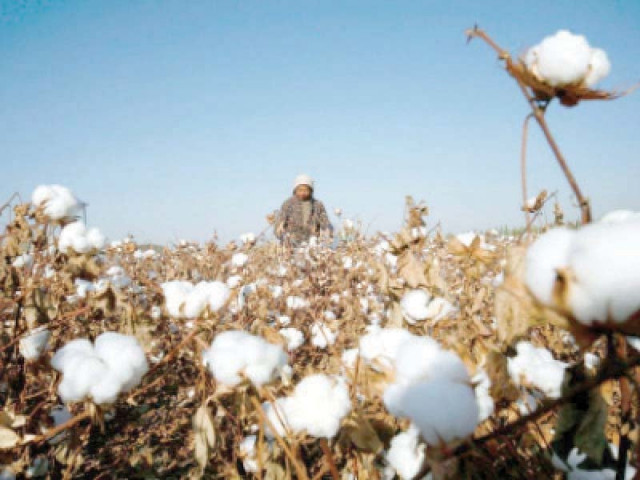Bahawalnagar’s cotton industry in tatters
Water scarcity and poor-quality seeds affect production and financially burden growers

Farmers of Bahawalnagar district, renowned for its cotton production, are suffering because of water shortage.
Located along the border with India in south-eastern Punjab, Bahawalnagar district plays a pivotal role in the national economy, being the largest exporter of cotton among all the districts of Pakistan.
Cotton Inspector Aamir Iqbal informed the Express Tribune that the target for cotton cultivation was set at 800,088 acres across the district this year. Cotton has been cultivated on 587,109 acres as of May 18 and 22,667 acres are being cultivated basis. Efforts are being made to achieve the target in a coordinated manner, but farmers are facing problems due to a lack of canal water for their crops.
The district features both small and large markets, as well as cotton ginning factories, which provide employment opportunities to locals and contribute to the local and national economy.
Farmer Muhammad Amjad Wattoo said that despite being a major contributor to the country's economy, the farmers of Bahawalnagar still face several challenges adversely affecting cotton production. One of the biggest challenges faced by the farmers is water scarcity and the supposed negligence of the irrigation department, which makes it difficult to supply the required amount of water to the crops, due to which the quality and quantity of cotton production in the region has dropped.
The second biggest issue is that farmers are observing the spread of unregistered, low-quality, untagged and locally-produced seeds, which have led to diminished quality crops. The lack of proper seed quality control measures leads to substandard production and increases in production cost, which further burdens farmers financially.
To make matters worse, the Federal Seed Certification Department, which is responsible for ensuring the supply of high-quality seeds, failed to set up its office in Bahawalnagar and is also unable to carry out quality control. Additionally, the high prices of essential commodities like seeds, chemicals, fuel and other agricultural inputs are also a concern for farmers. These rising production costs have made it difficult for farmers to make ends meet.
Hassan, a cotton farmer in Bahawalnagar, said, "A lack of adequate water resources, low quality seeds, spurious chemicals and rising costs have made it difficult for us to earn a decent living. The government must take immediate action to solve these problems."
Another farmer, Ali Akbar, added, "Farmers are reluctant to grow cotton in Bahawalnagar, which will be a huge blow to Pakistan's cotton industry. If this trend continues, there will be a significant decline in our cotton production. Farmers are planning to grow other crops as the cost of cotton production has become too high.” The farmers said immediate steps needed to help them in the district include ensuring an adequate water supply, quality control measures for seeds and solving other problems faced by growers.
Published in The Express Tribune, May 21st, 2023.


















COMMENTS
Comments are moderated and generally will be posted if they are on-topic and not abusive.
For more information, please see our Comments FAQ